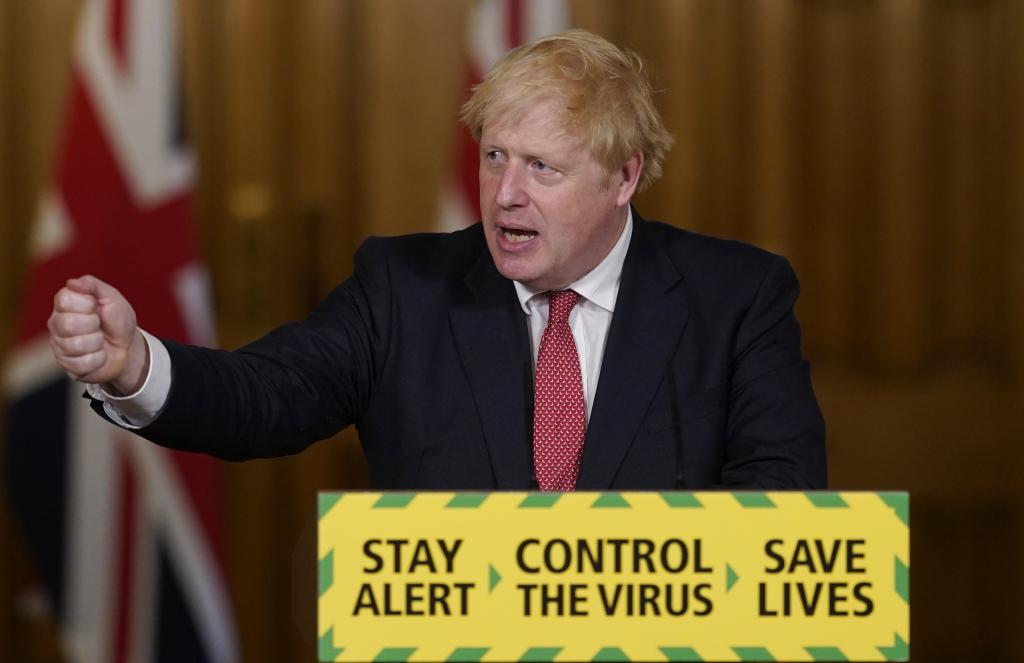Thessaloniki gets ready for its metro launch in November
The underground rapid transit lines have been under construction for almost two decades due to various project delays
 TheMayor.EU logo
TheMayor.EU logo 
boris johnson, Source: Boris Johnson Covid-19 Press Conference by Number 10 on Flickr (CC BY-NC-ND 2.0)
With the new changes, local governments will be able to act faster when responding to an unfolding crisis
At a press conference held yesterday 17 July, Prime Minister Boris Johnson announced a number of changes regarding the government’s approach to COVID-19 that will be coming into force over the next few weeks.
The new measures include concrete dates for the reopening of certain businesses, the reallowing of operations of wedding venues, theatres and cinemas and a pledge for the entire country to return back to normal come Christmas.
One of the most important parts of the government’s plan, however, is the expansion of powers of local authorities across England, without which none of what the Prime Minister has promised will be possible.
Local authorities are uniquely positioned to be closest to citizens and to always stand ready to answer their call and to respond to their needs. Yet throughout the crisis, they have been faced with far too many barriers and red tape that have prevented them from acting fast.
That is changing, starting today, as the government has expanded the powers of City Councils across England in order to allow them to better answer the threat of COVID-19. Some of their new competencies include:
Up until today, local governments in England had to seek approval from a magistrate before issuing their shutdown decrees, thus severely hindering their ability to respond to an unfolding crisis in a timely fashion. That is no longer the case as they can act without the need for prior approval.
During the press conference, Prime Minister Johnson urged local authorities to use their new powers with discretion and to not overstep boundaries. The shutdown orders issued by local governments can still be appealed by those affected and will be subjected to a mandatory weekly review in accordance with the development of the epidemiological situation in the respective area.

The underground rapid transit lines have been under construction for almost two decades due to various project delays

Now you can get your wine in Talence by paying directly in Bitcoin

That’s because the state has to spend money on updating the railway infrastructure rather than subsidizing the cost of the popular pass

Rethinking renewable energy sources for the urban landscape

The examples, compiled by Beyond Fossil Fuels, can inform and inspire communities and entrepreneurs that still feel trepidation at the prospect of energy transition

Now you can get your wine in Talence by paying directly in Bitcoin

The 10th European Conference on Sustainable Cities and Towns (ESCT) sets the stage for stronger cooperation between the EU, national and local level to fast track Europe's transition to climate neutrality.

At least, that’s the promise made by the mayor of Paris, Anne Hidalgo

The underground rapid transit lines have been under construction for almost two decades due to various project delays

At least, that’s the promise made by the mayor of Paris, Anne Hidalgo

Hostal de Pinós is located in the geographical centre of the autonomous region

Despite its church-y name, the district has long been known as the hangout spot for the artsy crowds

Urban dwellers across the EU are having a say in making their surroundings friendlier to people and the environment.

Forests in the EU can help green the European construction industry and bolster a continent-wide push for architectural improvements.

Apply by 10 November and do your part for the transformation of European public spaces

An interview with the Mayor of a Polish city that seeks to reinvent itself

An interview with the newly elected ICLEI President and Mayor of Malmö

A conversation with the Mayor of Lisbon about the spirit and dimensions of innovation present in the Portuguese capital














